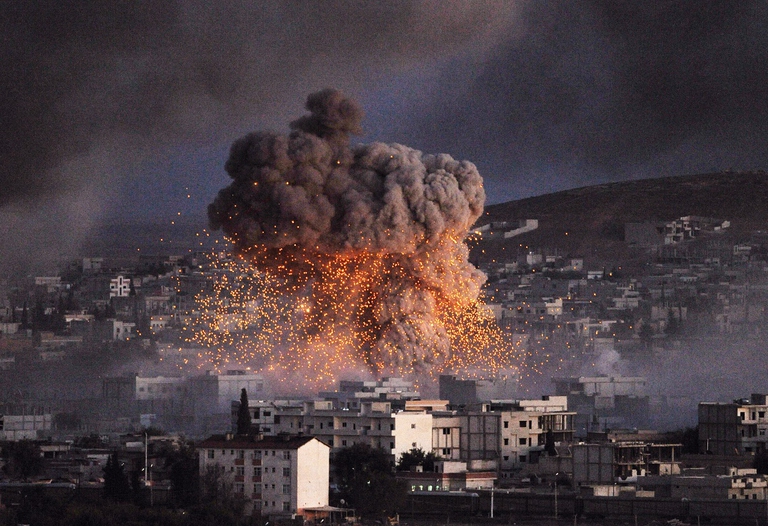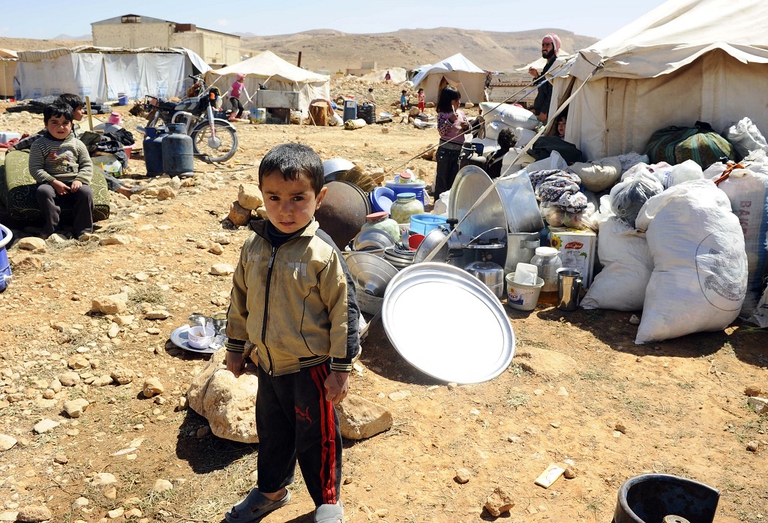
South African court dismisses a major lawsuit by 140,000 Zambian women and children against Anglo American for Kabwe lead poisoning. A setback for affected communities enduring the lasting impact of lead contamination.
Syrian drought, exacerbated by human-related activities, seems to have contributed to trigger the conflict that is putting the country on its knees and is causing millions of refugees.
Millions of displaced people, thousands of deaths, and relentless flows of refugees trying to enter Europe. The consequences of the Syrian civil war, started in March 2011 following the protests of the Arab Spring, are clear, but the causes that triggered it could be multifaceted.
One of the main causes has political implications. The regime of Bashar al-Assad has for too long denied basic freedoms and the possibility of free elections to Syrians, thus triggering the anti-government insurrection that ended up in the civil war.
Among the reasons that favoured the outbreak of the conflict is the most banal and ancient one: water. In fact, between 2007 and 2010 Syria was hit by a severe drought, the worst registered in the country over the last century, which left a million small farmers unemployed, and caused the migration of rural population towards cities. A study published in the journal Proceedings of the National Academy of Sciences, shows how drought in Syria intensified social uprising, exacerbating the pre-existing political instability.
According to the team of researchers, the water crisis – caused by decreaed winter rainfall and rising temperatures – has probably been worsened by human-driven climate change. “We’re not saying the drought caused the war,” said Richard Seager, climate scientist at Columbia University’s Lamont-Doherty Earth Observatory and co-author of the study. “We’re saying that added to all the other stressors, it helped kick things over the threshold into open conflict”.
Along with climate change, Syria’s water shortage could be attributed to the unsustainable management of aquifers that – excessively exploited – led to the depletion of irrigation wells. Syria proves how the effects of environmental degradation and global warming can significantly affect countries’ political stability, with consequences on a global level.
Just like the notion that a butterfly flapping its wings is able to cause a hurricane on the other side of the planet, the world is a sole and interconnected entity. Borders and boundaries are nothing other than drawings on maps, and wars in faraway countries can have a knock-on effect in others thought to be unrelated.
The international meeting Environmental Justice and Climate Change highlighted how climate change will have negative consequences on the efforts made to reduce poverty, causing an increasing malnutrition and up to 250 million climate refugees over the next few years.
It may seem trivial, but trying to solve the causes of migrations rather than contain them is the best solution. The environmental causes of wars shouldn’t be underestimated, since food and water will play an evermore important role in the coming years. Restoring countries’ natural systems (and, therefore, their economies) would help reduce poverty and conflicts.
Siamo anche su WhatsApp. Segui il canale ufficiale LifeGate per restare aggiornata, aggiornato sulle ultime notizie e sulle nostre attività.
![]()
Quest'opera è distribuita con Licenza Creative Commons Attribuzione - Non commerciale - Non opere derivate 4.0 Internazionale.
South African court dismisses a major lawsuit by 140,000 Zambian women and children against Anglo American for Kabwe lead poisoning. A setback for affected communities enduring the lasting impact of lead contamination.
Controversial African land deals by Blue Carbon face skepticism regarding their environmental impact and doubts about the company’s track record, raising concerns about potential divergence from authentic environmental initiatives.
Majuli, the world’s largest river island in Assam State of India is quickly disappearing into the Brahmaputra river due to soil erosion.
Food imported into the EU aren’t subject to the same production standards as European food. The introduction of mirror clauses would ensure reciprocity while also encouraging the agroecological transition.
Sikkim is a hilly State in north-east India. Surrounded by villages that attracts outsiders thanks to its soothing calmness and natural beauty.
Sikkim, one of the smallest states in India has made it mandatory for new mothers to plant saplings and protect them like their children to save environment
Chilekwa Mumba is a Zambian is an environmental activist and community organizer. He is known for having organized a successful lawsuit against UK-based mining companies.
What led to the Fukushima water release, and what are the impacts of one of the most controversial decisions of the post-nuclear disaster clean-up effort?
Nzambi Matee is a Kenyan engineer who produces sustainable low-cost construction materials made of recycled plastic waste with the aim of addressing plastic pollution and affordable housing.









